DUBAI: Israel’s war with Hamas in Gaza is threatening to embroil neighboring Arab states in a regional conflict as militias sympathetic to the Palestinian group mount their own attacks on Israeli and American targets. One country that is especially vulnerable to this potential escalation is Lebanon.
Hezbollah, a Shiite militia that emerged from the Lebanese Civil War of 1975-90 and continues to control a formidable arsenal of weapons and share of the national economy, is under tremendous pressure to declare war if Israel mounts a ground invasion of Gaza.
The cash-strapped government in Beirut and communities along the embattled border with Israel are in no condition to mount a sustained defense in the event of all-out war amid a crippling financial crisis and years of political paralysis.
Nevertheless, government agencies, hospitals, schools, and hotels have begun preparing for evacuations, safe zones and the treatment of casualties should serious fighting break out — in a conflict that many fear will be far more destructive than the 2006 war.
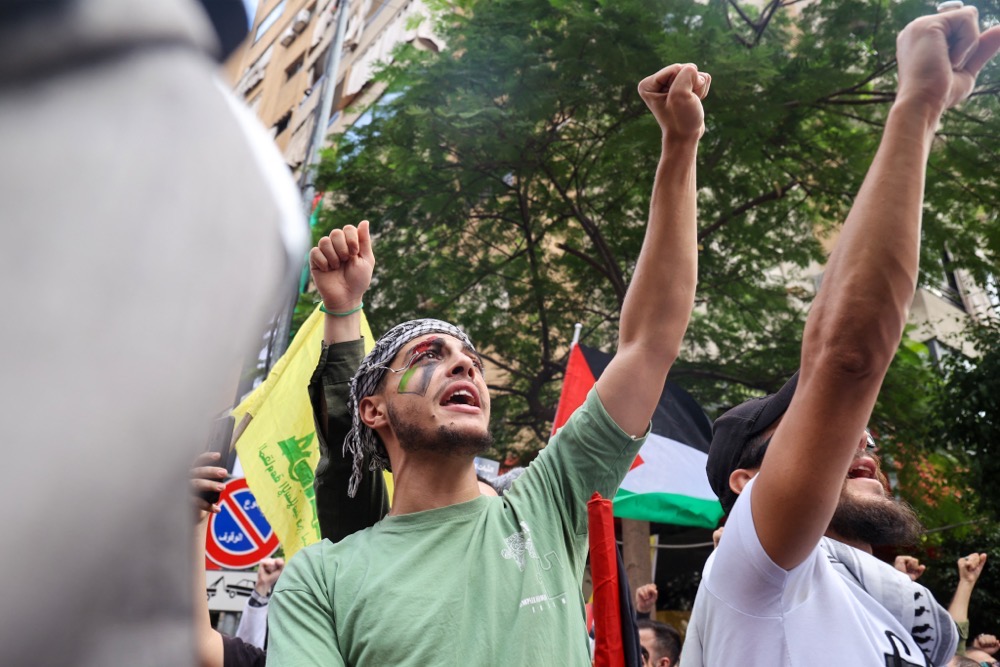
Hezbollah is under tremendous pressure to declare war if Israel mounts a ground invasion of Gaza. (AFP)
“My husband works in the Gulf and is doing his best, but I won’t be able to stay in the hotel for more than a few weeks. And then where do I go?” Layal, a mother of two who fled the border area for the safety of Beirut, told Arab News.
“My kids are 11 and 9. They don’t understand the gravity of what’s taking place and they thankfully didn’t taste the bitterness of 2006. They think we’re on holiday. I am yet to explain to them what’s really happening.”
Civilians in southern Lebanon remember all too well the July 2006 war between Hezbollah and Israel, which killed more than 1,200 Lebanese, mostly civilians, and injured over 4,400. In Israel, 160 were killed, mostly soldiers. The 30-day conflict displaced around 1 million Lebanese civilians.
Fearing a repeat of the carnage, whole communities have already evacuated their homes.
“You can easily tell how neighborhoods have turned into ghost towns now. You can see it from the lack of laundry hanging on the balconies. It’s just a few houses now,” Safi, a Lebanese media worker, told Arab News.
“Those who remained are men who have sent their wives and children away to safety. People are scared. The word on people’s lips is the acknowledgment that the scale of destruction this time around will not be the same as 2006, but much, much worse.

“Even those who support Hezbollah are aware that the destruction will pale in comparison to 2006.”
Safi considers himself lucky to have escaped with his life after the building where he was staying in Naqoura was bombed shortly after he made his way to Beirut. “I got lucky, and now residents in neighboring Talloussa village have started to flee as well,” he said.
Not everyone has fled already, however. Small shops remain open and olive farmers in Dhayra have also decided to stay on. “You can hear the clashes ongoing, but leave to Tyre or Nabatieh and it’s a whole other vibe there. Normalcy and traffic generally prevail,” said Safi.
Tensions remain high along the Lebanese-Israeli border with skirmishes between Hezbollah and Israeli forces prompting fears of further escalation. Heavy shelling recently targeted the disputed Shebaa Farms area alongside Bint Jbeil and Rab Al-Thalathine.
Some 41 people have been killed on the Lebanese side, according to a tally by the AFP news agency, mostly combatants but including four civilians, one of them Reuters journalist Issam Abdallah. Four people have been killed in Israel, including three soldiers and one civilian.
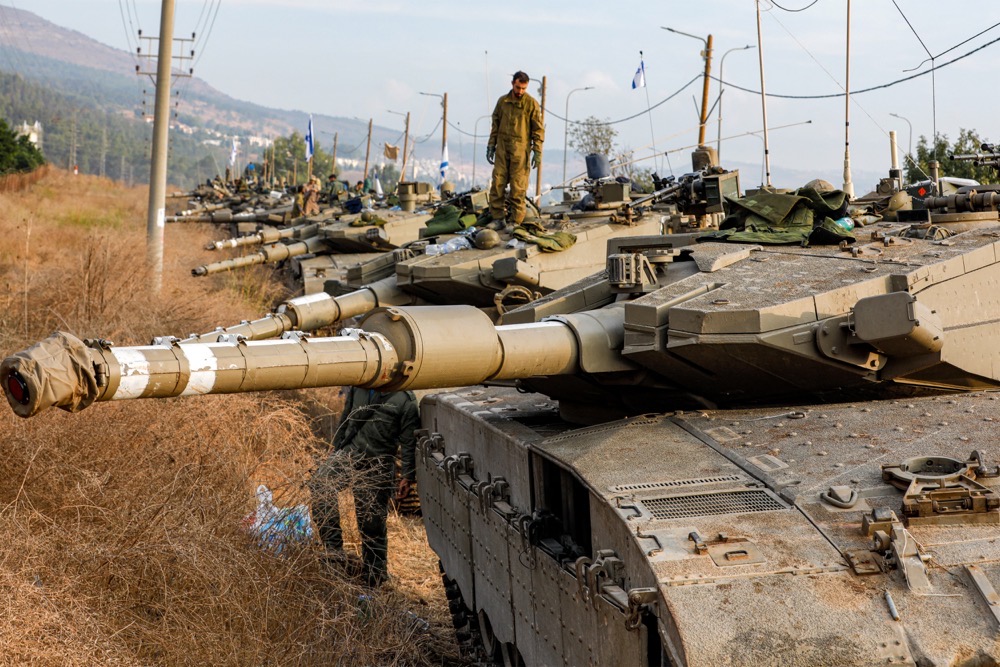
The 30-day conflict between Israel and Hezbollah in 2006 displaced around 1 million Lebanese civilians. (AFP)
More than 4,000 Lebanese civilians have already fled their homes to neighboring areas like Tyre and to the capital, Beirut. Meanwhile, Israel has continued to expand its own evacuation plan, moving communities to state-funded temporary accommodation away from the border.
In a statement, Andrea Tenenti, spokesperson for the UN Interim Force in Lebanon, which administers the Blue Line separating the two countries, said the peacekeeping force “remains fully committed to their mission represented by restoring stability in southern Lebanon and are doing their utmost to prevent the escalation of hostilities.”
However, the warring factions have continued to trade fire with a steadily increasing intensity since the conflict began on Oct. 7, when Hamas launched its unprecedented cross-border attack on Israel, prompting the bombardment of Gaza and a widely expected ground assault.

While Hezbollah leader Hassan Nasrallah has yet to address the escalations publicly, his second in command, Naim Qassem, said the group is “fully ready” and will not be intimidated by Washington to stay out of the conflict.
Hassan Fadlallah, a Hezbollah lawmaker, also released a statement saying the militia is closely monitoring developments and directing soldiers.
Hezbollah and Sunni Muslim group Hamas both have ties with the Quds Force — the foreign operations arm of Iran’s powerful Islamic Revolutionary Guard Corps. They are also both part of the so-called “axis of resistance” made up of Lebanese, Palestinian, Syrian, Iraqi, Yemeni and other Iran-backed armed groups opposed to Israel.
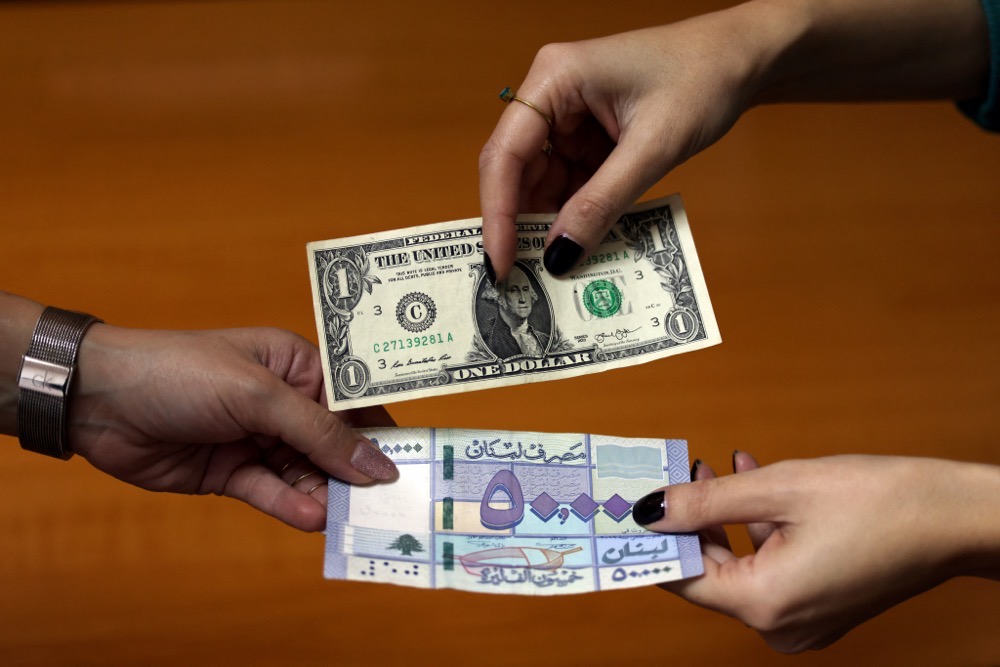
Some 90 percent of the Lebanese population now lives below the poverty line. (AFP)
Tehran provides Hezbollah with financial and military support, while neighboring Syria, where the group has been fighting on the side of President Bashar Assad in his country’s civil war, facilitates the transfer of weapons — including guided missiles.
If Hezbollah does choose to enter the conflict on the side of Hamas, opening up a new front against Israel from southern Lebanon, the results could be devastating for both sides.
Although the humanitarian crisis in Gaza has provoked strong support for Palestinians and hostility to Israel on the Arab street, public opinion in Lebanon is divided on whether Hezbollah should become directly involved in the war.
INNUMBERS
• 100,000 Fighters at Hezbollah’s disposal as of October 2021, according to group’s chief Hassan Nasrallah.
• $700m Hezbollah’s military budget as of 2018, according to the Wilson Center and US official estimates.
Lebanon has been in the throes of a devastating economic crisis since late 2019, while political disharmony has left the country without a stable, functioning government. Some 90 percent of the population now lives below the poverty line.
Despite staunchly opposing Israel, Walid Jumblatt, the former leader of the Progressive Socialist Party, said Lebanon might not be able to escape the possibility of a “widening circle of war.”
That is why Druze villages in the mountains “will be open to everyone, Shiite or Sunni or Christian,” said Jumblatt, whose party is making “necessary logistical efforts to accommodate those displaced from areas that could be targeted in the event of an Israeli attack.”
Hassan Dbouk, the mayor of Tyre, has said that shelters are already full and that the municipality is now looking to open more centers to host displaced families.
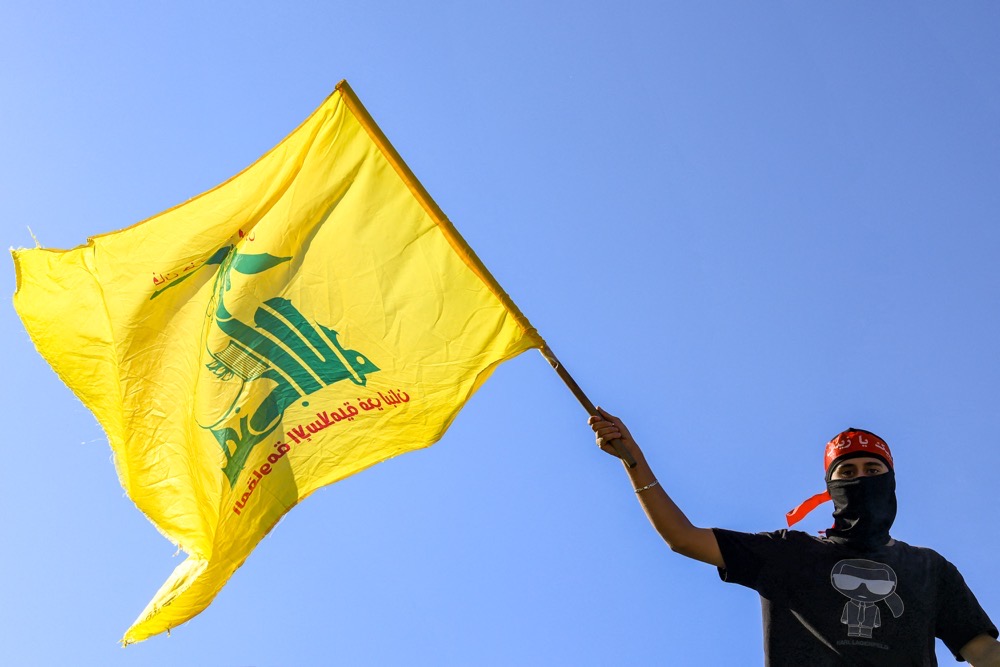
If Hezbollah does choose to enter the conflict on the side of Hamas the results could be devastating for both sides. (AFP)
Mortada Mohanad, director of the disaster management unit, said three public schools have been turned into makeshift shelters to house around 1,000 people. Aid agencies, meanwhile, are focused on the distribution of food and other basic necessities.
However, amid these frantic preparations, there are also those who appear to be profiting from the displacement.
Ali Tabaja, head of the Lebanese union of tourism syndicates, said hotels and landlords have taken advantage of the crisis and hiked their prices, “just because some of our people are subject to the Israeli aggression in the southern border regions and are looking for safer places.”
Tabaja urged Walid Nassar, the minister of tourism, and the hotel syndicate to “issue directions prohibiting people from increasing prices and taking advantage of displaced people.”
Najib Mikati, Lebanon’s caretaker prime minister, has said that Lebanon does not want to go to war, but he “could not get assurances about the developments from any party” as the situation is constantly changing.
Opinion
This section contains relevant reference points, placed in (Opinion field)
The Lebanese government has set up an emergency plan in case of an all-out war, estimating that close to 1.5 million civilians will be displaced.
The plan categorizes areas in the country into color-coded zones. Southern towns and those along the Israeli border, including Al-Hermel, Baalbek and Baabda, are considered red zones — those most likely to be targeted by Israel.
Areas such as Tyre, Sidon, Beirut, Zahle and west Bekaa, deemed as yellow zones, have been selected to provide shelter, support and aid. Green zones, including Chouf, Aley, Metn and the Bekaa, have been selected to welcome displaced households.
Under the plan, some 75 schools across the country will be turned into makeshift shelters and 20 percent of Beirut port’s profits will be allocated for rebuilding and infrastructure in case of attacks.
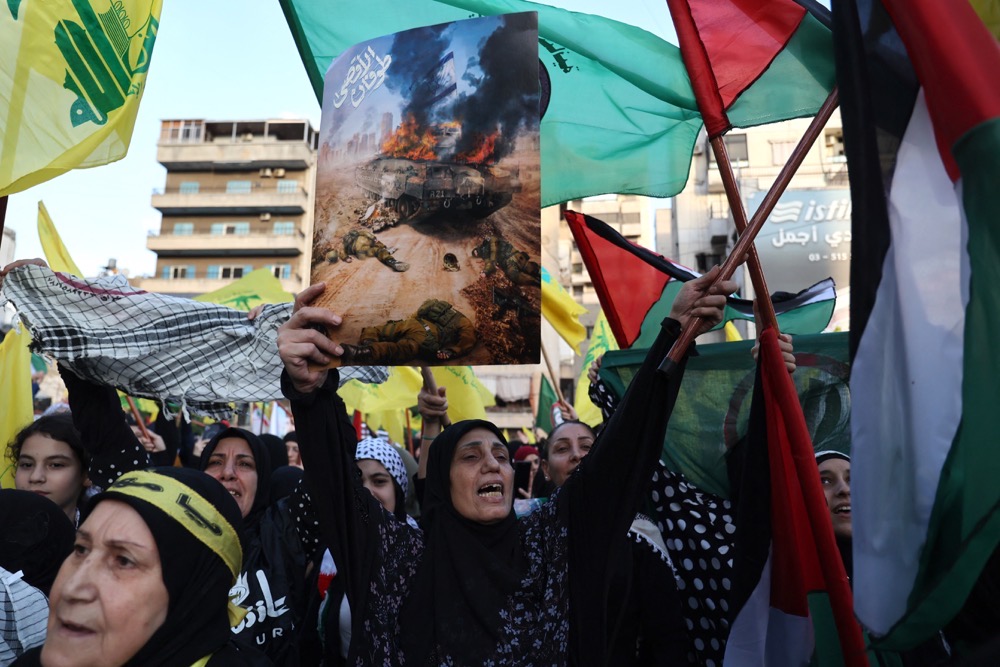
Government agencies, hospitals, schools in Lebanon have begun preparing for evacuations. (AFP)
The Ministry of Health has set aside funding to ensure humanitarian aid and services. Daily governmental meetings will start taking place to tackle the issues of food and clean water supplies.
Despite the government’s initiatives, many Lebanese citizens remain skeptical about the delivery of state assistance. “I doubt we’ll see a dollar,” said Layal, the mother displaced to Beirut with her two children.
“I don’t believe the government will help. The moment international aid will arrive, it’ll fill their pockets. We had the support of Arab nations in 2006, but now who will come to our aid? God, only God.”






























